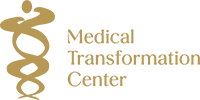Thyroid problems can be more harmful than you think. Without proper diagnosis and treatment, they can lead to serious health problems. That’s why we offer thyroid testing at Medical Transformation Center in Louisville, KY, so we can help address your health concerns. We can prevent severe medical problems from occurring in the first place by providing you with a variety of professional diagnostic equipment, techniques, as well as new technologies.
How Does Thyroid Testing Work?
Thyroid testing works through a simple blood test. First, we extract your blood sample and send it to a laboratory for analysis. From there, we measure your thyroid hormone levels. Your findings are made available and can be interpreted after a few days. We may also perform a physical examination of your thyroid to assist us in learning more about your thyroid status. During your consultation, we will gently examine your neck and search for any growths or other anomalies.
In addition to blood tests, we may also use imaging techniques to check for potential thyroid issues. An ultrasound test, for example, can be used to create images of your thyroid. In performing an ultrasound test, we first apply a cold gel to your skin. After that, we’ll delicately place a probe on your neck and glide it over your thyroid. We will be able to learn more about the health and functionality of your thyroid gland as a result.
Measuring TSH (Thyroid Stimulating Hormone) Levels
When we conduct blood tests to check for your thyroid’s condition, we measure the hormones present in your blood. Measuring TSH (thyroid-stimulating hormone) levels in your sample is the best technique to monitor the onset of any thyroid problem. Fluctuations in your TSH levels can serve as an early warning sign of any issue before your thyroid hormone levels rise or fall significantly.
For example, when your TSH levels are too high, it might mean that your thyroid gland is not producing enough hormones. We refer to this condition as primary hypothyroidism. On the other hand, when your TSH levels are too low, we might conclude that your thyroid produces too much thyroid hormone (also known as hyperthyroidism). A low TSH can sometimes be caused by a pituitary gland defect that prevents it from making enough TSH.
Measuring T3 (Triiodothyronine) T4 (Thyroxine) Levels
Thyroxine or T4 is the most common type of thyroid hormone in circulation. This hormone is responsible for maintaining your metabolism, mental state, and body temperature. When combined with a TSH test, tests assessing T4 levels provide a more accurate picture of how your thyroid gland works. TSH levels that are too high and T4 levels that are too low may indicate primary hypothyroidism. Low TSH and T4 levels may indicate hypothyroidism.
Triiodothyronine or T3 tests are frequently used to diagnose hyperthyroidism. We also use T3 level measurement to assess the severity of your thyroid issue. T3 levels affect your muscle, brain, heart, and digestive functions. Your thyroid will increase the levels of this hormone if you have hyperthyroidism, as revealed by your test results. You can have severe hypothyroidism with a high TSH and low T4 but a normal T3 in some situations.
Antibody Tests
The immune system protects us from foreign invaders such as bacteria and viruses by eliminating them with antibodies. These antibodies are produced by lymphocytes, which are found in our blood cells. Your lymphocytes can produce antibodies against thyroid cell proteins when you have a thyroid disease.
Thyroid antibodies can be detected through testing. We’ll measure your thyroid antibody levels to determine whether you have a potential thyroid issue.
The Importance of Thyroid Testing
Because thyroid problems can have serious health repercussions, it’s critical to recognize and treat them as soon as possible. When your thyroid generates insufficient or excessive levels of hormones, you may experience a medical disorder. For example, when your thyroid does not produce enough hormones, hypothyroidism develops. Hyperthyroidism, on the other hand, occurs when the thyroid gland produces too many hormones.
Do you have unexplained weight changes, emotional instability, or other warning signs of thyroid issues? We can perform thyroid testing to see whether you might have a problem with your thyroid. A timely test can help.
How Do You Prepare for a Thyroid Test?
The test usually takes a few minutes of preparation. But before the blood test, you do not need to fast. It also makes no difference if you take any thyroid medication right before the blood test. If you’re taking any other medications, let us know. Some medicines can change the way tests are performed and understood.
It’s also crucial to record any X-ray tests that required the use of a particular contrast dye. Your previous test may have contained iodine, which may influence the accuracy of your results. Thyroid hormone levels also tend to fluctuate throughout pregnancy, so let us know if you’re expecting when the test is done.
What To Expect
Thyroid testing is simple and comfortable for most patients. If you’ve ever had blood work done, then you have a good idea of how the test feels. It takes only a few minutes. As soon as we’ve completed collecting your blood, you’ll be able to resume your normal activities. There’s no downtime necessary.
Similarly, a physical examination of your neck should not be a source of concern. We’ll inspect this portion of your body slowly and softly, and you’ll have the opportunity to ask questions as we go through this section of your consultation.
Understanding Your Test Results
Changes in your thyroid do not happen overnight. Generally, it’s unusual for your thyroid to become overactive or underactive all of a sudden. Usually, it takes a few weeks, if not months, for the shift to occur. If you have a thyroid test that indicates something is wrong, you may need to repeat the examination in 3-6 weeks. There’s always the possibility that your thyroid gland will return to normal on its own.
Another thing to keep in mind is that your test results might be influenced by drugs, including herbal medicines and vitamin supplements. When evaluating and evaluating your thyroid function, we also take this in mind.
Factors To Consider
Several factors may affect your susceptibility to thyroid issues. Hyperthyroidism, hypothyroidism, and other thyroid issues can affect people of all ages and genders. At present, thyroid problems affect millions of people in the United States. However, certain risk factors can increase your odds of having a thyroid problem later in life.
Pre-Existing Conditions
Do you have pre-existing conditions? Thyroid problems are more likely to occur if you have a number of ailments or illnesses. Type I diabetes, for example, will increase your risk of having thyroid problems. If you have this issue, we recommend that you consider undergoing regular thyroid tests. Similarly, type 2 diabetes raises your risk of developing a thyroid disease as you age. Lupus, anemia, and arthritis can also increase your risk of developing thyroid problems.
Genetics
If your parents, siblings, or other relatives have had thyroid problems, you’re more likely to acquire thyroid problems yourself.
Demographics
Thyroid diseases are far more common in women than in men. Thyroid problems are also more prevalent in adults over the age of 60.
What Conditions Can Be Detected Through Thyroid Testing?
Thyroid tests given in time can assist us in spotting imbalances that could potentially cause health problems. When your thyroid hormone levels are imbalanced, your body doesn’t get the right amount of hormones it requires to function.
Thyroid disease is the umbrella term for a group of conditions caused by thyroid issues. It can come in a variety of forms, severity levels, and effects on the body. Thyroid testing can help you figure out if you’re at risk for the following conditions:
Hyperthyroidism
Hyperthyroidism occurs when the thyroid is overactive or produces too many thyroid hormones. One of the most common causes of hyperthyroidism is Graves’ disease, an autoimmune disorder. Thyroid inflammation, on the other hand, can result in an overabundance of hormones. When left untreated, hyperthyroidism can cause serious problems with your bones, muscles, and heart. Hyperthyroidism can also affect women’s menstrual cycles and fertility.
When you have the following symptoms, you may be suffering from hyperthyroidism:
- Fast heartbeat
- Sleeping problems
- Unintentional weight loss
- Hair thinning
- Sensitive skin
Hypothyroidism
When your thyroid is underactive or does not create enough thyroid hormones, you have hypothyroidism. Hashimoto’s disease is an autoimmune disorder that causes the immune system to attack the thyroid. It is the most common cause of hypothyroidism in the United States.
When you have an underactive thyroid, your entire body tends to slow down, including your metabolism. The symptoms of the disorder develop gradually and progress slowly. At first, you may feel more exhausted than usual. Hypothyroidism can also cause high cholesterol, which raises the risk of heart disease. You might also experience reduced mental and cognitive performance when you have untreated hypothyroidism.
As your hypothyroidism worsens, you may notice more symptoms, such as:
- Mood swings
- Tiredness
- Slow heart rate
- Difficulty losing weight
- Muscle pain
- Heavy menstrual periods
- Bowel issues
Your Treatment Options and Health Solutions
Do you suffer from any of the symptoms of thyroid disease? After testing, we can also assist you in addressing and resolving your issues. Medication and surgery are the two most popular methods.
Medication
Hyperthyroidism and hypothyroidism can both be treated with prescription drugs. The majority of them are taken daily as a pill or capsule. Others, on the other hand, are injected at regular intervals.
If prescription medication is the best course of action for you, we’ll talk about it when the time comes. The discussion will assist you in narrowing down which regimen is ideal for your circumstances.
Surgical Treatment
In some circumstances, the thyroid gland is surgically removed. Surgery is the most common treatment choice for hyperthyroidism, which might be resistant to medicine or in cases when the thyroid has already caused severe medical problems. Medication is frequently provided after surgery.
While these are the two most prevalent treatments for thyroid disorders, they are far from the only options. We’ll let you know if any alternative solutions would be better for you.
Talk to an Expert
Thyroid health is essential for both mental and physical well-being. Without the right balance of hormones, you may feel less like yourself. Your body systems won’t be able to function as expected. Do you think your thyroid needs to be checked? It’s time to consider thyroid testing with our help. To learn more, contact Medical Transformation Center in Louisville, KY today to schedule a consultation.





